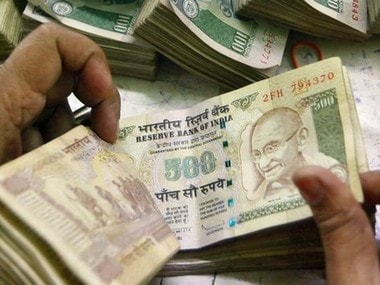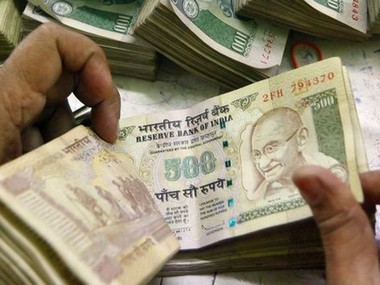Prime Minister Narender Modi’s campaign trail rhetoric in 2013-14 Rs 15 lakh would be credited into the bank accounts of every citizen if the entire black money were unearthed became a butt of joke with his detractors. And the joke is still doing the rounds. On 30 August, 2017, the RBI annual report that people had returned Rs 15.28 lakh crore of the Rs 15.44 lakh banned currency or 98.96 percent of the scrapped Rs 500 and Rs 1,000 notes to the banking system has provided them with another ammunition to take a dig at Modi and his Finance Minister Arun Jaitley. To be sure, the Prime Minister in his address to the nation on the evening of 8 November, 2016 did list corruption, black money and fake currency notes as the immediate provocation for the drastic measure. Later on, he added cashless economy and later still less cash economy. Critics once again pounced on him saying he was shifting the goal post. And when on 30 August, 2017 Finance Minister Jaitley said confiscation wasn’t the aim of demonetisation but mainstreaming of the economy was, there were many rolled eyes in pretended exasperation and mockery. Goal post is said to be shifted when it favors one side in a game but here there was just one side—the nation—fighting against black money, corruption and fake currency. How on earth was then the goal post shifted? The color of the cat doesn’t matter so long it catches mice said Deng Xiaoping the Chinese paramount leader. One can add the stated objectives don’t matter when the upshot of a measure is good or favorable. And in any case fight against black money is also to mainstream the subterranean economy. In other words mainstreaming was implicit in fight against black money. [caption id=“attachment_3830853” align=“alignleft” width=“380”]
 Reuters[/caption] The Modi government did fare very poorly with the two amnesty schemes it has unrolled thus far, the first one in 2015 targeting the non-residents and the second one in 2016 targeting the domestic black money. They not only got lukewarm response but also sent a bad signal—crooks were being humored by the BJP government as well. But demonetisation fluttered the dovecots of the crooks and the laidback like never before. Its success should not be judged on the basis of notes surrendered. That close to 99 percent of the banned high denomination notes were deposited with the banks is being tom-tommed as the failure of the scheme. In their worldview had a very high percentage not returned it would have reduced government’s obligation sizably and thus constituted a special dividend for its admittedly disruptive efforts. But this is a myopic and jaundiced view. Demonetisation has had the effect of flooding the bank coffers like never before resulting in some of the banks going to the extent of reducing the savings interest rate held sacrosanct at 4 percent minimum for a long time. The money that was sloshing around in the subterranean economy defying monetary policy and taxman has now come overboard. And that is the single-most victory for the government which has very wisely followed up demonetisation with another paradigm changing measure, GST. The two in tandem have mainstreamed the economy like never before as borne out by the surging tax collections both direct and indirect as well as millions of new registration on the GST portal and sizeable increase thus far in the number of income-tax payers in the ongoing assessment year 2017-18. Amnesty schemes have an evanescent impact whereas the effort should be to usher in measures having a long-lasting and sustained impact. On this touchstone, demonetisation is a resounding success. Those operating in the unorganised economy have now surfaced, as it were, after having been smoked out by the demonetisation exercise. The inevitable deposit of black money into banks is going to stop future generation of black money thanks to GST that leaves audit trails of successive flow of money. Only the naïve and the peevish would say that demonetisation was a failure because the government succeeded in impounding or confiscating just 1 percent of the banned currency. The real success is the mainstreaming of the unorganised and the subterranean economy. So what, if they weren’t the stated objectives when demonetisation was launched. So what, if they are ex-post facto justification. So what, if things have panned out that way. Objectives might have been confused but the results have been good.
Reuters[/caption] The Modi government did fare very poorly with the two amnesty schemes it has unrolled thus far, the first one in 2015 targeting the non-residents and the second one in 2016 targeting the domestic black money. They not only got lukewarm response but also sent a bad signal—crooks were being humored by the BJP government as well. But demonetisation fluttered the dovecots of the crooks and the laidback like never before. Its success should not be judged on the basis of notes surrendered. That close to 99 percent of the banned high denomination notes were deposited with the banks is being tom-tommed as the failure of the scheme. In their worldview had a very high percentage not returned it would have reduced government’s obligation sizably and thus constituted a special dividend for its admittedly disruptive efforts. But this is a myopic and jaundiced view. Demonetisation has had the effect of flooding the bank coffers like never before resulting in some of the banks going to the extent of reducing the savings interest rate held sacrosanct at 4 percent minimum for a long time. The money that was sloshing around in the subterranean economy defying monetary policy and taxman has now come overboard. And that is the single-most victory for the government which has very wisely followed up demonetisation with another paradigm changing measure, GST. The two in tandem have mainstreamed the economy like never before as borne out by the surging tax collections both direct and indirect as well as millions of new registration on the GST portal and sizeable increase thus far in the number of income-tax payers in the ongoing assessment year 2017-18. Amnesty schemes have an evanescent impact whereas the effort should be to usher in measures having a long-lasting and sustained impact. On this touchstone, demonetisation is a resounding success. Those operating in the unorganised economy have now surfaced, as it were, after having been smoked out by the demonetisation exercise. The inevitable deposit of black money into banks is going to stop future generation of black money thanks to GST that leaves audit trails of successive flow of money. Only the naïve and the peevish would say that demonetisation was a failure because the government succeeded in impounding or confiscating just 1 percent of the banned currency. The real success is the mainstreaming of the unorganised and the subterranean economy. So what, if they weren’t the stated objectives when demonetisation was launched. So what, if they are ex-post facto justification. So what, if things have panned out that way. Objectives might have been confused but the results have been good.
Demonetisation: Black money seizure may have failed; real success is the mainstreaming of economy
S Murlidharan
• August 31, 2017, 15:44:56 IST
Demonetisation has had the effect of flooding the bank coffers like never before resulting in some of the banks going to the extent of reducing the savings interest rate
Advertisement
)
End of Article